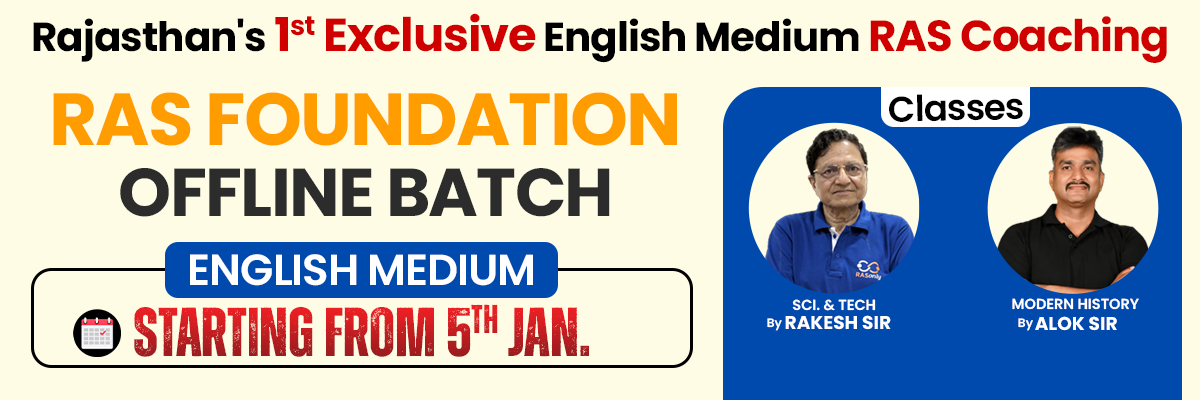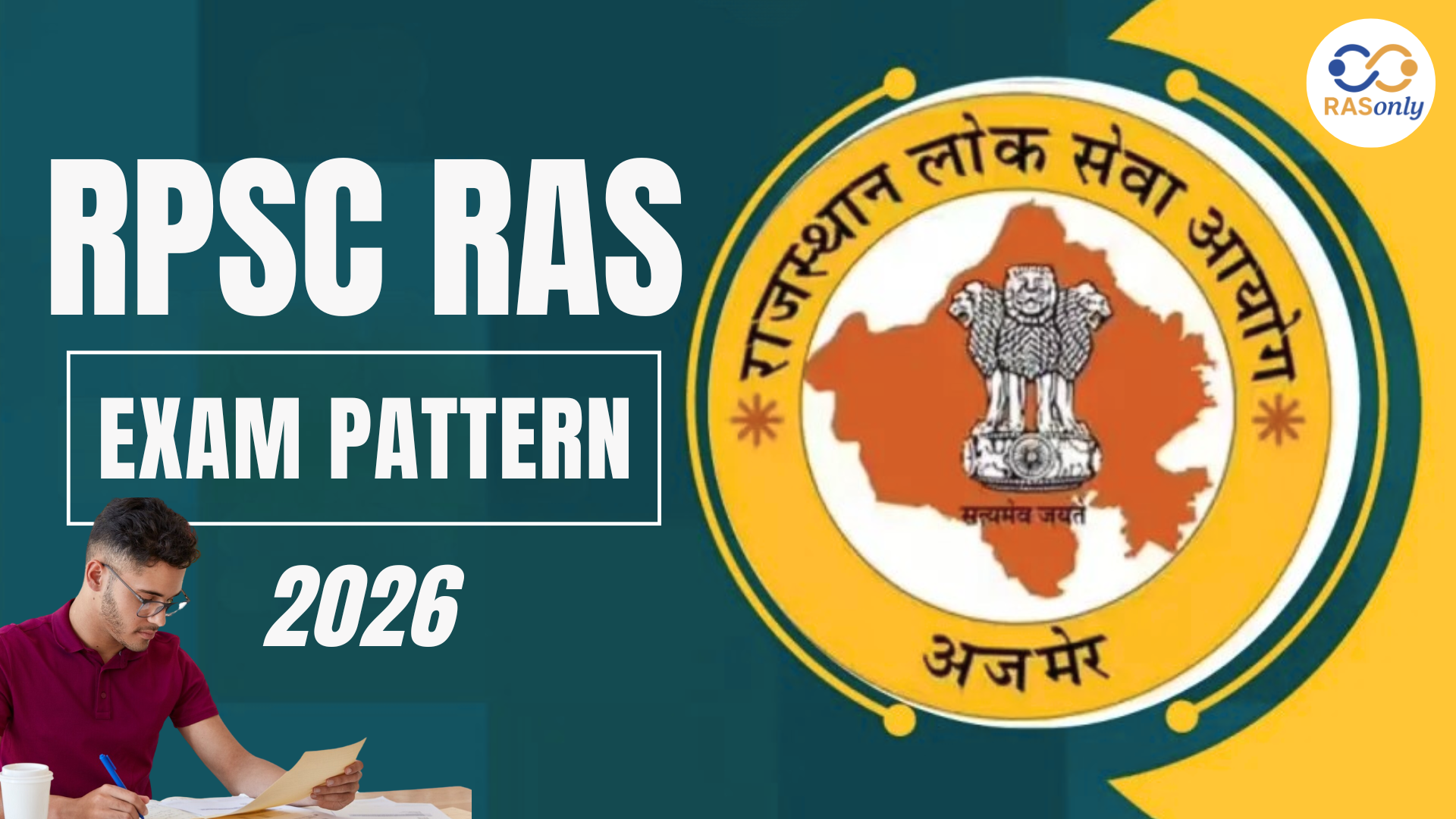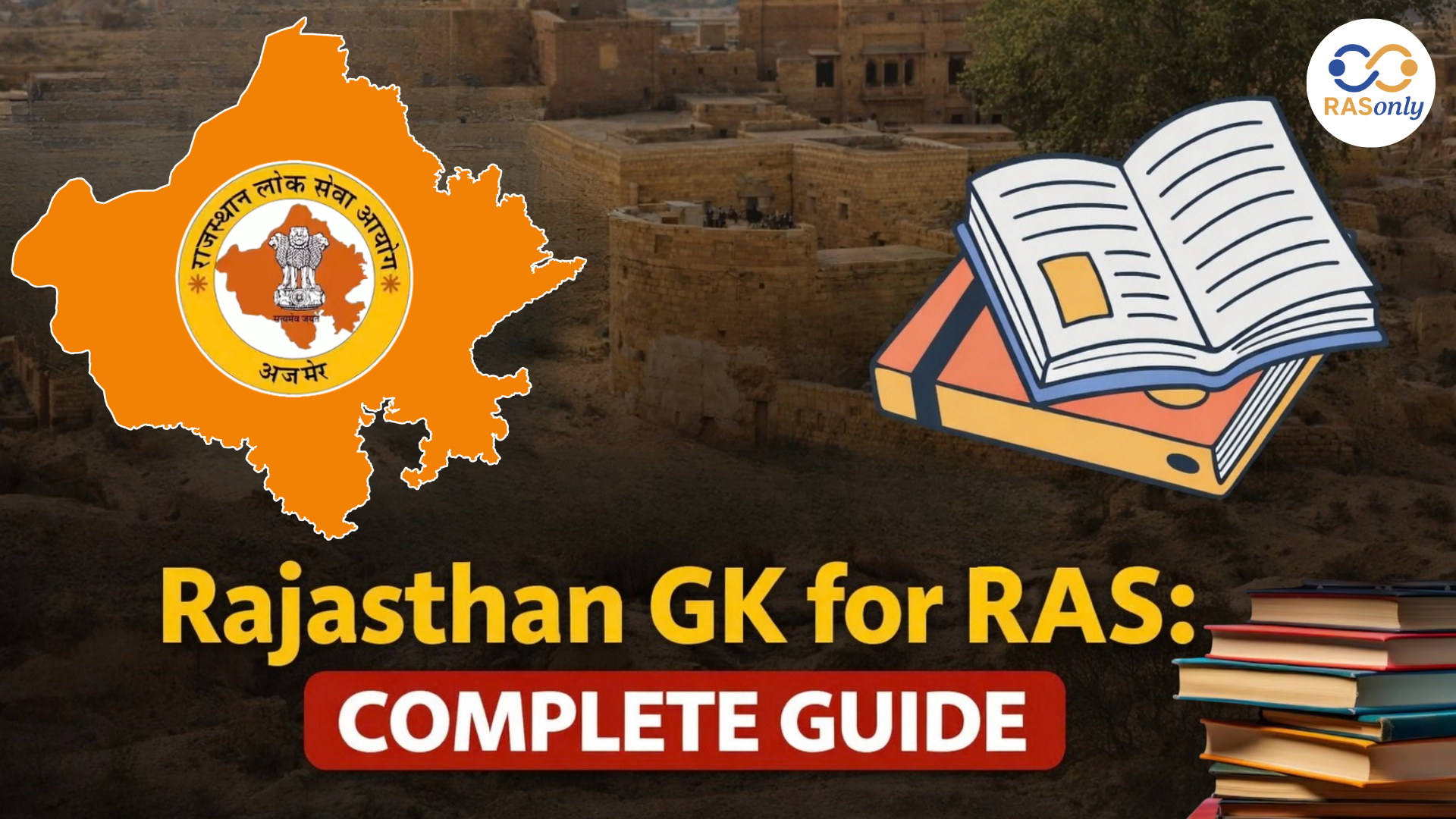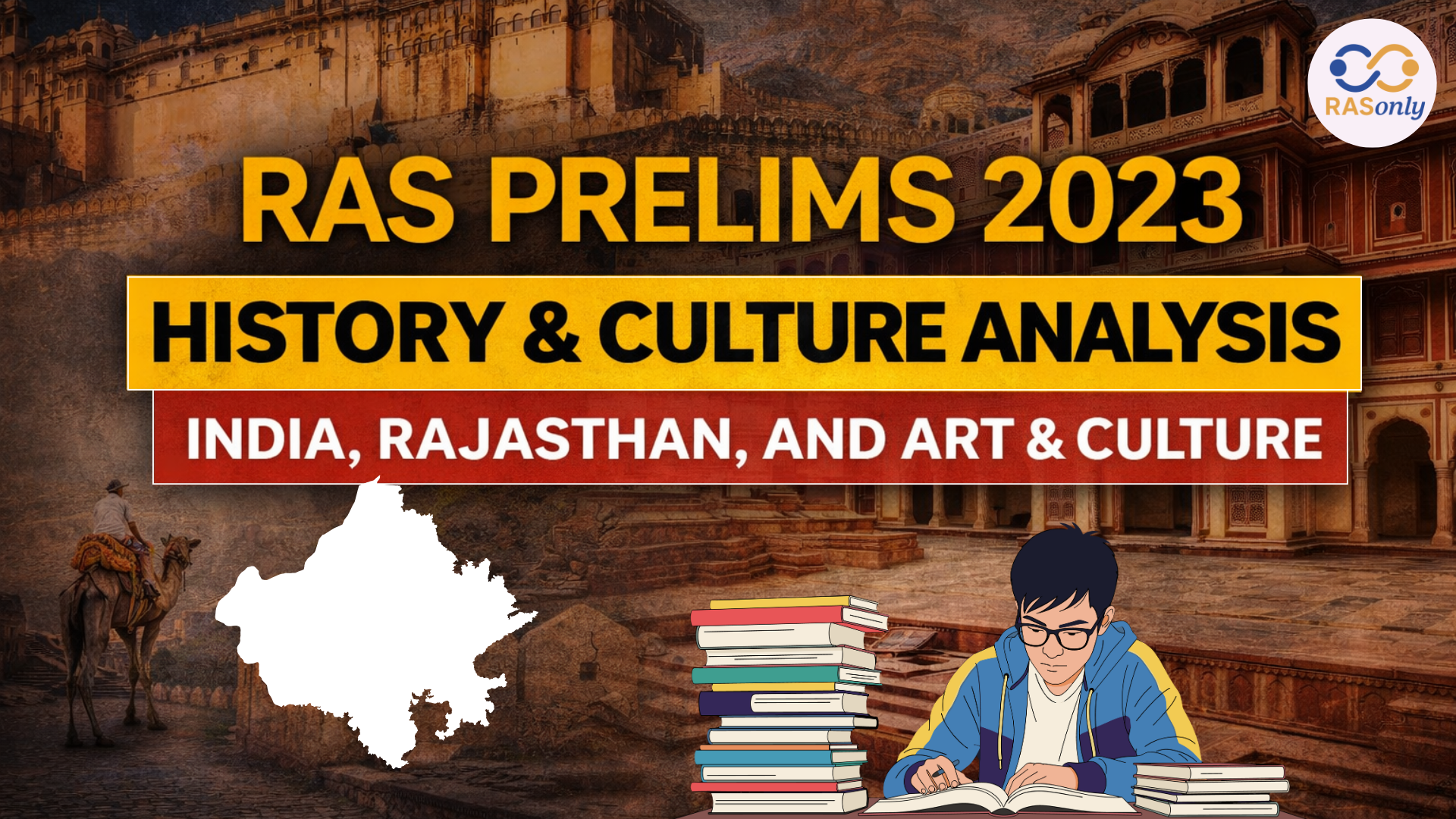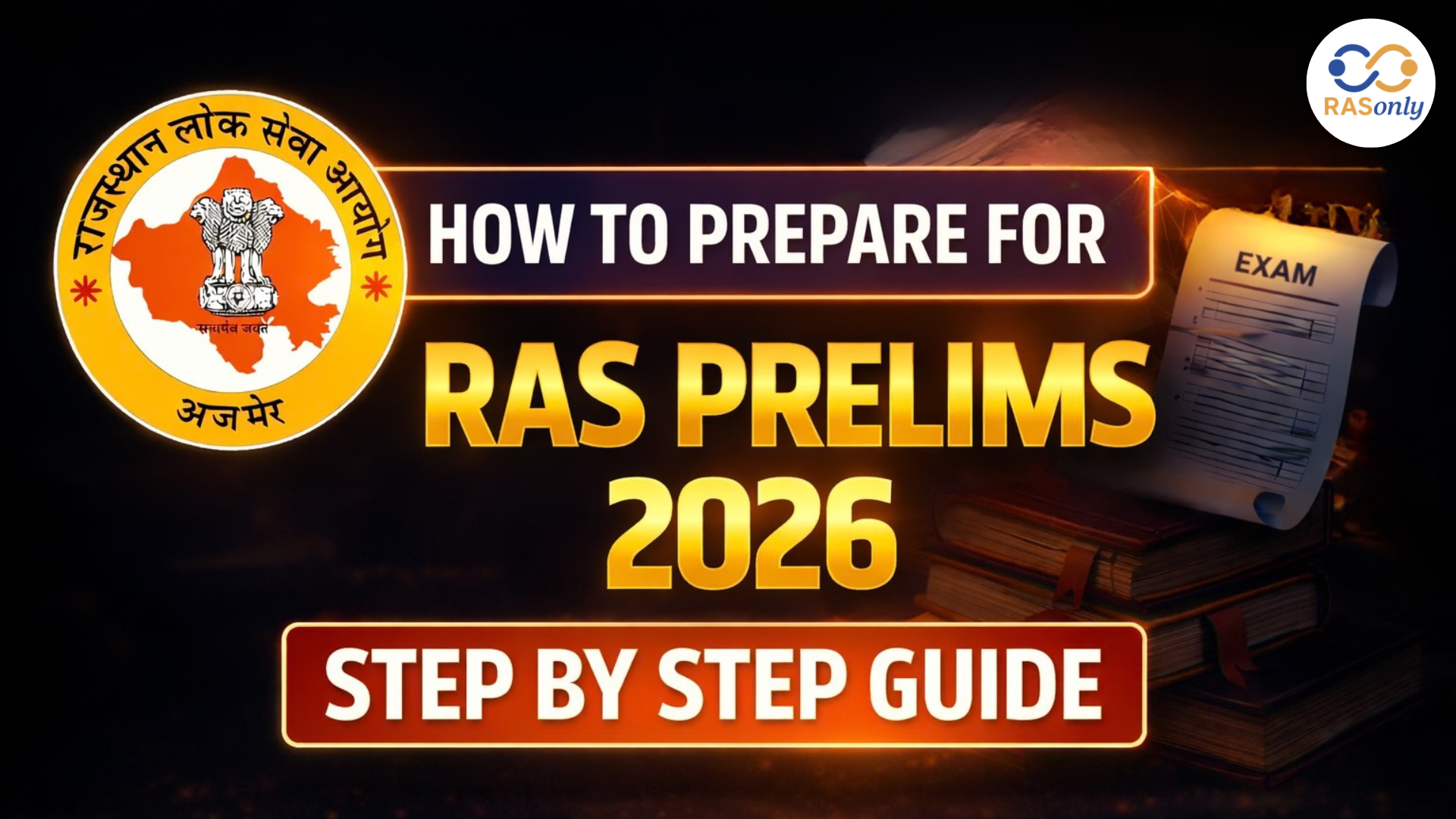RPSC RAS 2026 Subject Wise Exam Pattern for Prelims, Mains & Interview Details
- >
- RAS Preparation Resources
- >
- Contribution of Indian Scientists in Science and Technology
Contribution of Indian Scientists in Science and Technology

Get in Touch with RASonly!

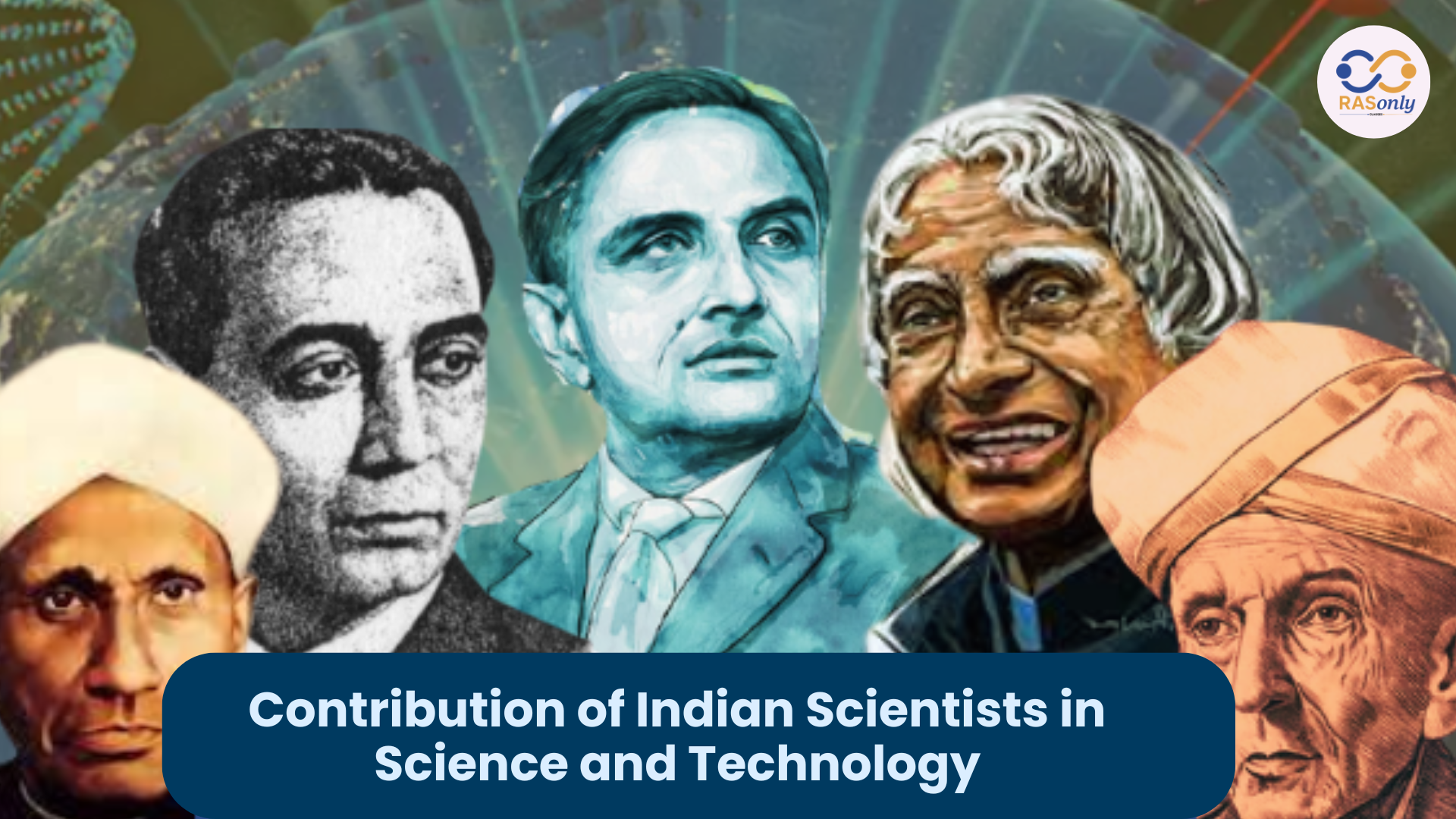
Indian scientists have played a major role in helping the world advance scientifically by making some of the revolutionary inventions in the fields of mathematics, physics, nuclear energy, space research as well as agriculture. And it is through Ramanujan theories in mathematics and the outlook Vikram Sarabhai had on space that India has taken a prominent position on the world scientific horizon. These pioneers transformed their industries in their lives even though they had few resources or recognition during their youth. They have stories of great dedication to knowledge and national development. His legacy motivates the new generation of Indian scientists even now.
Key Points for RAS Mains
First Indian Scientists and their Achievements
1. Srinivasa Ramanujan Aiyangar (1887 1920)
- Field: Pure Mathematics
- Key Contributions:
- He had worked out more than 3,000 theorems on number theory, continued fractions, infinite series and partitions.
- Introduced Ramanujan Prime, Theta function and Mock theta functions.
- Although she had no formal training, she was made a fellow of the Royal Society of London.
- He was known to have an instinctive understanding of mathematical problems.
2. C.V. Raman (1888-1971)
- Domain: Physics (Optics)
- Key Contributions:
- Raman Effect (1928) was discovered and demonstrated how light is scattered and displayed a particle-like nature.
- Nobel Prize in Physics (1930) Won Nobel first and only Asian Nobel laureate to get Nobel in science.
- His finding was the basis of quantum mechanics and spectroscopy.
3. Jagdish Chandra Bose (1858-1937)
- Subject: Physics, Biophysics and Botany
- Key Contributions:
- Radio and microwave optics pioneer.
- Carried out some of the early wireless transmission experiments which were earlier than Marconi.
- Showed sensitivity in plants and established the fact that plants possess life responses through his invention- the Crescograph.
- The first Indian to be elected a Fellow of the Royal Society (1920).
4. Homi Jahangir Bhabha (1909-1966)
- Field: Nuclear Physics
- Key Contributions:
- Architect of India’s nuclear program.
- Established Tata Institute of Fundamental Research (TIFR) and Bhabha Atomic Research Centre (BARC).
- Encouraged atomic energy to be used peacefully in agriculture, medicine and energy.
- Proponent of autonomous scientific research.
5. Vikram Sarabhai (1919-1971)
- Area: Space Science
- Key Contributions:
- The Indian Space Programme; founder of ISRO.
- India has launched its first satellite called Aryabhata.
- Encouraged and encouraged the application of space technology in communication, weather and education.
- Carried out fundamental studies on cosmic rays.
6. Verghese Kurien (1921-2012)
- Its history: Dairy Science and Rural Development
- Key Contributions:
- In the White Revolution, he was referred to as the Father of White Revolution.
- Became the founder of Amul and NDDB and introduced the Anand model of dairy cooperatives.
- Contributed to the emergence of India as the biggest milk producer in the world.
- Advocated rural self-help and collective agriculture.
7. Satyendra Nath Bose (18941974)
- Field: Theoretical Physics
- Key Contributions:
- Created the BoseEinstein Statistic in joint effort with Albert Einstein.
- He is named after the term, boson (particles with an integer spin).
- His work has been the basis of discovering Bose-Einstein Condensate.
- It was crucial to quantum statistical mechanics.
8. Subrahmanyan Chandrasekhar (1910-1995)
- Field: Astrophysics
- Key Contributions
- The Chandrasekhar Limit - the greatest mass of a stable white dwarf star (~1.4 solar masses) also came to light.
- Work described how massive stars are developing into supernovae, neutron stars, or black holes.
- Nobel laureate in Physics, 1983 (with William A. Fowler).
Key Scientists
|
Scientist |
Field |
Key Contribution |
Recognition |
|
Ramanujan |
Mathematics |
Number theory, infinite series |
Fellow of Royal Society |
|
C.V. Raman |
Physics |
Raman Effect |
Nobel Prize (1930) |
|
J.C. Bose |
Biophysics, Radio waves |
Radio waves, plant physiology |
Knighted, FRS |
|
H.J. Bhabha |
Nuclear Physics |
Indian nuclear program |
Founder of BARC |
|
V. Sarabhai |
Space Science |
Founder of ISRO |
Launched Aryabhata |
|
Verghese Kurien |
Dairy Science |
White Revolution, Amul |
Padma Vibhushan |
|
S.N. Bose |
Quantum Physics |
Bosons, B-E statistics |
Bosons named after him |
|
S. Chandrasekhar |
Astrophysics |
Chandrasekhar Limit |
Nobel Prize (1983) |
Conclusion for RPSC
India has a well-documented history of scientific-minded thinkers, not only developing the global science, but also working towards national tasks and problems, food security, space exploration, etc. Their cross-disciplinary contributions, which ranged between Ramanujan glamorous theorems to the Kurien milk revolution, demonstrates how scientific innovation can change things in societies. These heroes still motivate India to become a world leader in the knowledge and technology sector in the 21st century.
Also Read: Missile Programs in India
Also Read: Nanotechnology in India
FAQs realted to RAS RPSC
Post Category
- RAS Salary
- Result
- RAS Admit Card
- RAS Job
- RAS Cutoff
- Preparation Tips
- RAS Answer Key
- RAS Exam Analysis
- RAS Syllabus
- RAS Previous Year Papers
- RPSC RAS Exam Pattern
- RAS Interview
- RAS Mains Exam Date
- RAS Vacancy
- RAS Test Series
- RAS Best Books
- RAS Preparation Resources
- RAS Coaching Centre
- History
- Polity
- Geography
- Economics
- Science
- Art and Culture
- RPSC RAS Application Form
- RPSC RAS Notification
RASonly Interview Guidance Program

Mr. Ashok Jain
Ex-Chief Secretary Govt of Rajasthan
- IAS officer of the 1981 batch, Rajasthan cadre.
- Passionate about mentoring the next generation of RAS officers with real-world insights.
- Got retired in Dec 2017 from the post of Chief Secretary of the state of Rajasthan.

Mr. Guru Charan Rai
Ex-ASP / SP in Jaisalmer
- Guru Charan Rai, IPS (Retd), retired as Inspector General of Police (Security), Rajasthan, Jaipur in 2017.
- Served as ASP and SP in Jaisalmer, Nagaur, Sri Ganganagar, Sawai Madhopur, Dausa, Sikar, and Karauli.
- He also held key positions as DIGP and IGP in the Law and Order division.

Mr. Rakesh Verma
Ex-IAS Officer, B.Tech, MBA, and M.A. (Economics)
- IAS officer of the 1981 batch and retired in Chief Secretary Rank.
- Civil servant of high repute and vast experience.
- Has been teaching UPSC CSE subjects for the last six years.
Related Post
Daily Current Affairs for RAS Exam Preparation 2026
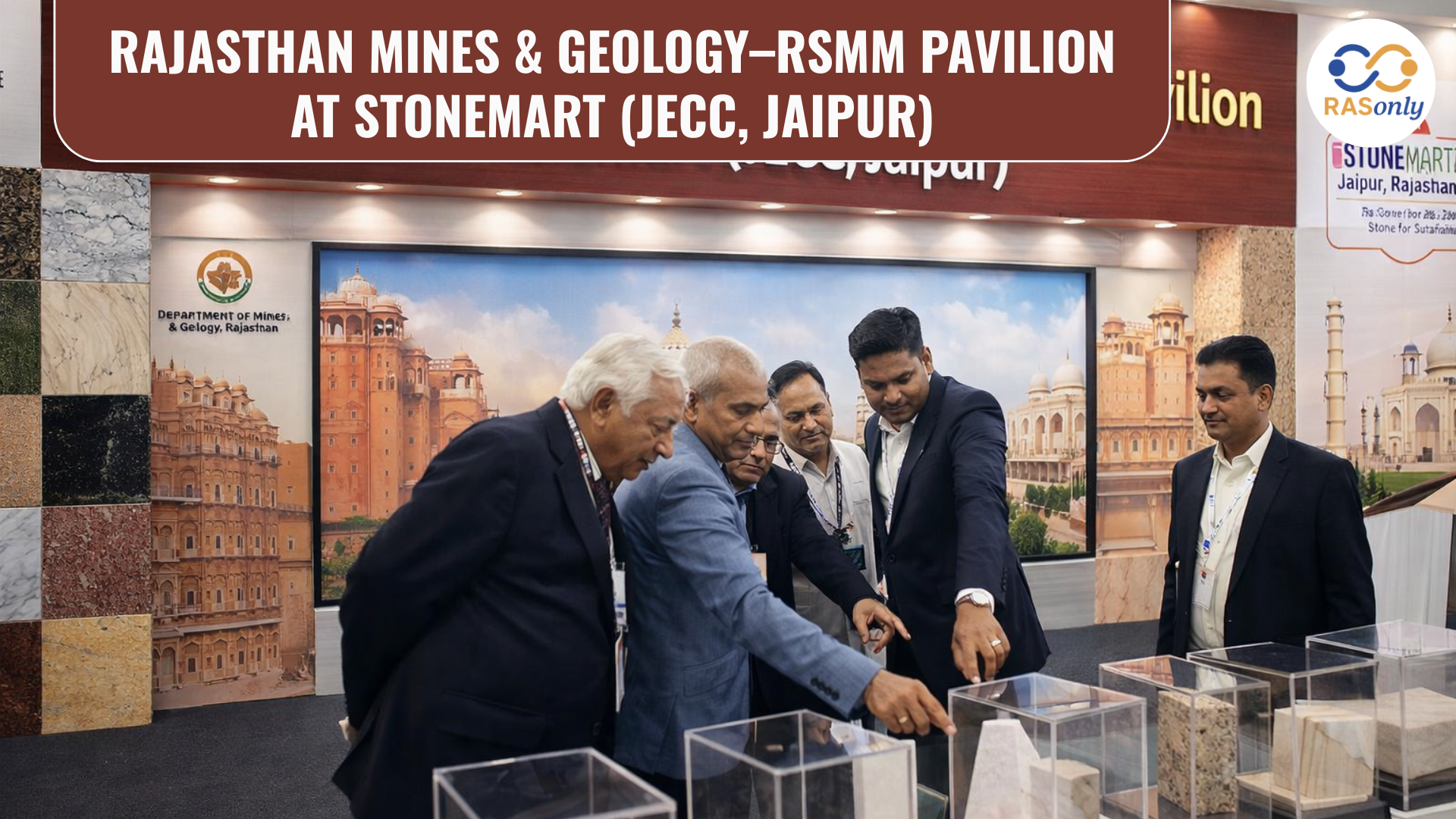
Rajasthan Pavilion Shines at Stone Mart Jaipur 2026
February 07, 2026
Rajasthan Achieves 3,000 MW Under PM-KUSUM Scheme
February 07, 2026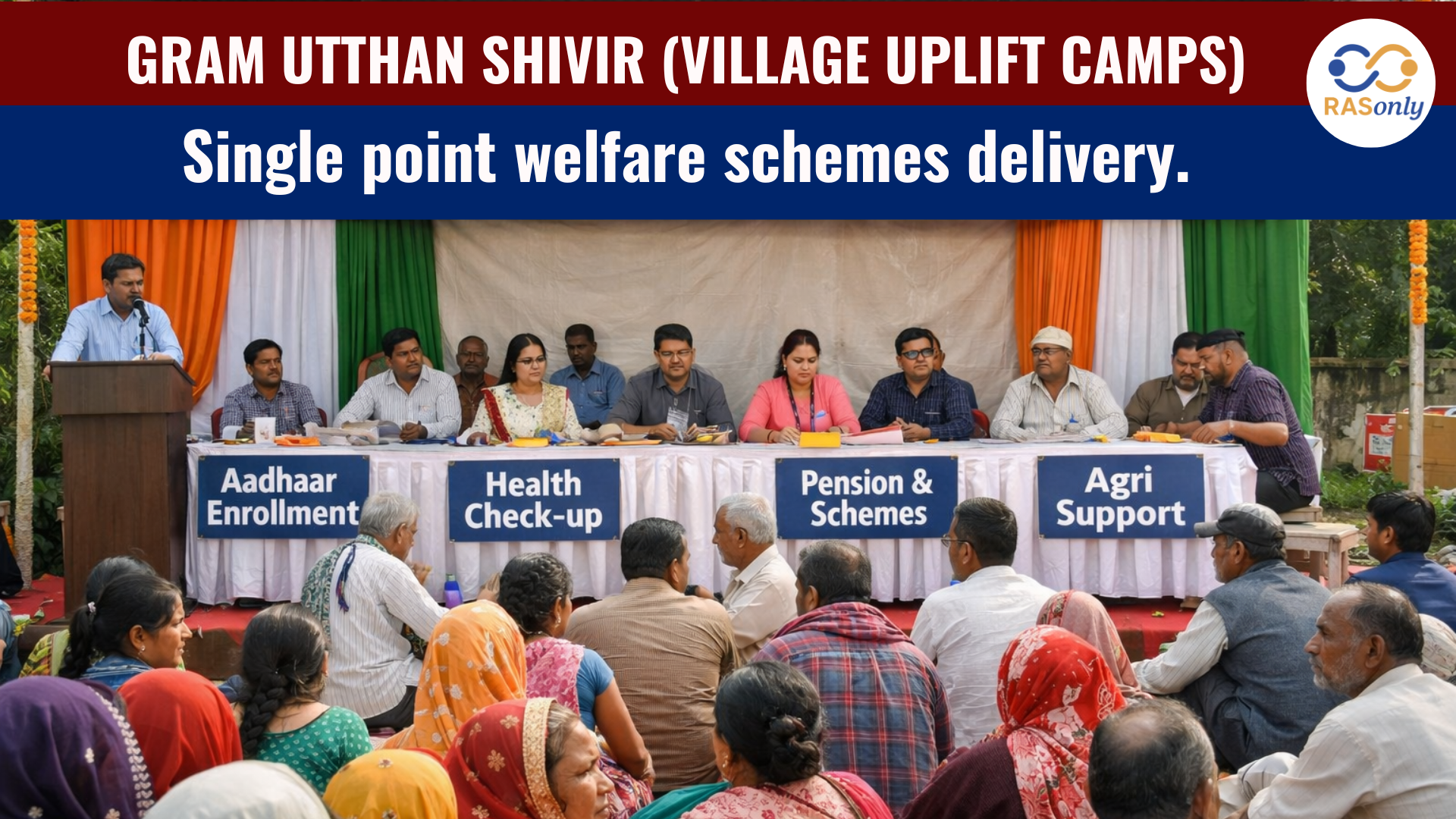
Gram Utthan Shivirs Strengthen Rural Governance in Rajasthan
February 07, 2026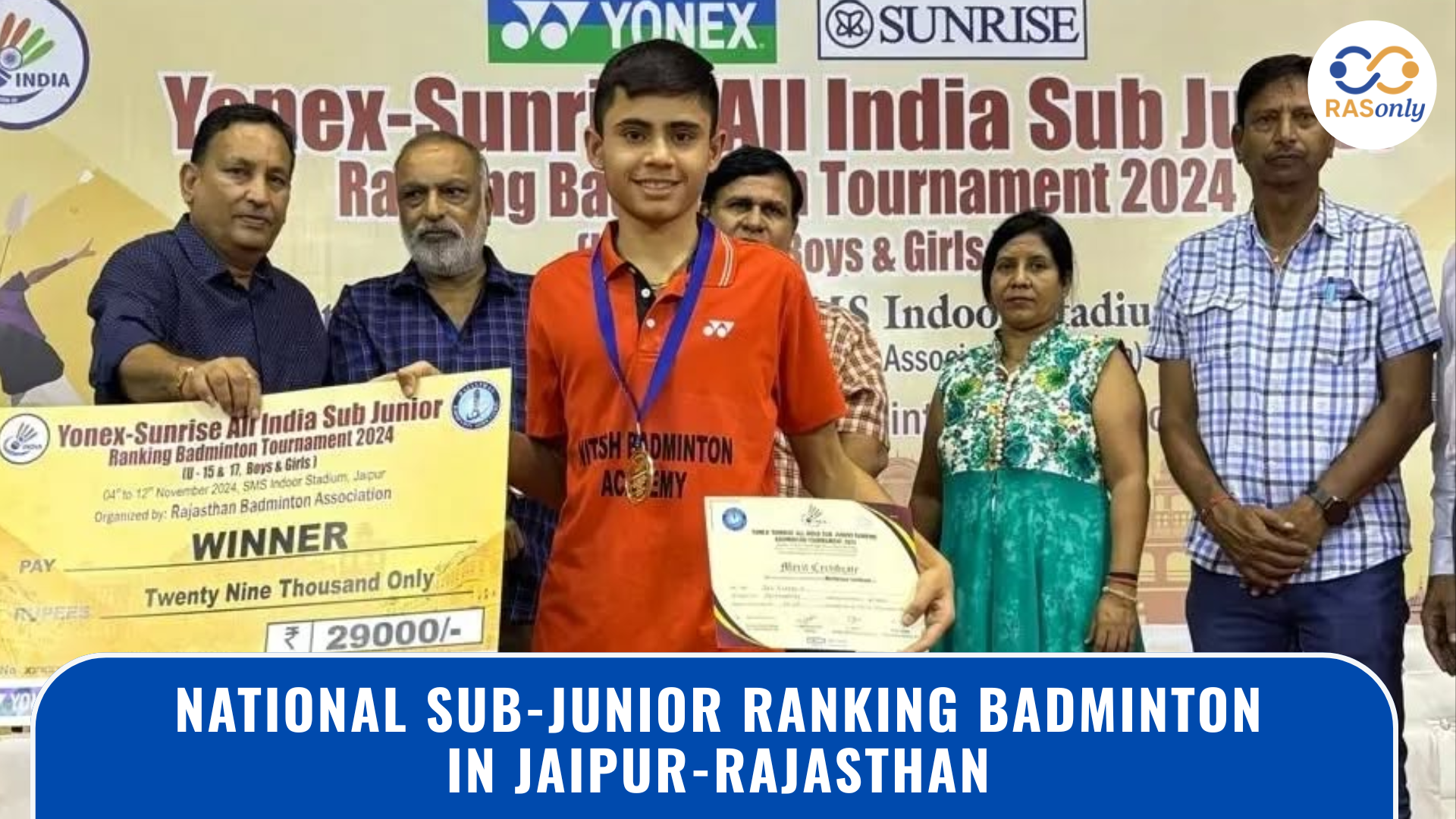
Jaipur Badminton: 72-Minute U-15 Final Creates Record
February 06, 2026👉🏻 Register Today to Join Classes! 👍🏻
- Team RASOnly -
🎯 Benefits of RASOnly Coaching:
- ✅ 1:1 Mentorship with RAS Officers
- ✅ Experienced and Expert Faculty
- ✅ Free Library Access
- ✅ Daily Minimum 4 Hours Must
- ✅ Comprehensive Study Material
- ✅ Regular Tests & Performance Analysis
- ✅ Personalized Guidance & Doubt Solving
- ✅ Online & Offline Class Options
- ✅ Affordable Fees with Quality Education
Key Highlights:
- 👉🏻 3-Day Refund Policy
- 👉🏻 New Batch Starting from 04 August
- 👉🏻 Registration Amount: Only ₹1000




